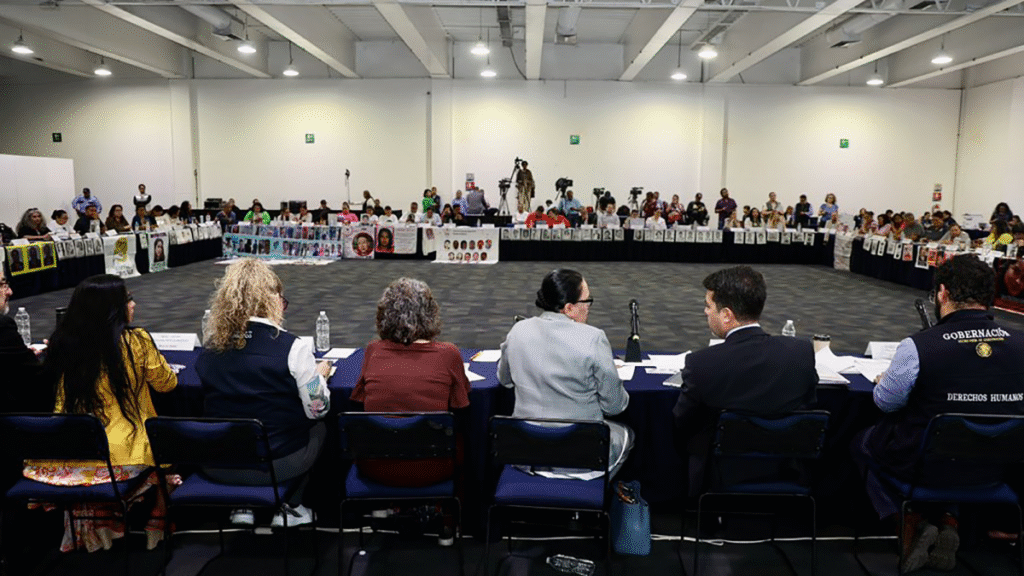Background and Context
Rosa Icela Rodríguez, the Secretary of the Mexican Department of Internal Affairs (Segob), addressed a special message to parents and guardians of missing persons, acknowledging their presence and appreciating their years-long struggle. This meeting marks the beginning of dialogue tables focused on the agenda of disappearances and searching for missing persons, involving civil society groups, federal authorities, and victim families.
Government’s Commitment
Rodríguez emphasized that the government, under President Claudia Sheinbaum, considers addressing the disappearance crisis as a national priority with a humanistic and shared responsibility approach.
The objective of these working sessions is to establish a continuous dialogue between authorities and civil society, where proposals are heard, public policies are discussed, and joint actions are defined to tackle the crisis.
“This is a matter of humanity that concerns us all – authorities, victims, and society as a whole. First and foremost, we are mothers, grandmothers, aunts, sisters, and we also have loved ones; we cannot be indifferent to others’ pain,” Rodríguez stated during the meeting.
Among the commitments, Rodríguez highlighted legal reforms led by the federal executive to achieve tangible results, such as locating missing persons and effectively combating impunity.
To accomplish this, she announced the formation of multidisciplinary teams in each entity, comprising Segob, the Federal Attorney General’s Office (FGR), and other agencies.
“We may not see immediate results, but we will achieve them gradually, together,” she assured.
NGO’s Perspective
The Movement for Our Disappeared in Mexico (MNDM), which represents over 90 groups from Mexico, Central America, and the United States, welcomed the opening of this space as an invaluable opportunity to build national strategies aimed at eradicating disappearances.
MNDM emphasized that this effort stems from the resilience, dignity, and love of families who have led searches and demanded justice for decades.
The dialogue tables will revolve around five thematic axes: search and security, forensic human identification, databases and information systems, family well-being, and prevention. MNDM stressed that any effective policy must involve active family participation and demanded the government to commit to implementing dialogue outcomes effectively, as well as establishing monitoring and social control mechanisms.
“From MNDM, we thank society for accompanying us and reiterate our commitment to informing you about the progress and initiatives that arise, both through media and social networks,” an official MNDM communication stated.
Key Questions and Answers
- Who is Rosa Icela Rodríguez? She is the Secretary of the Mexican Department of Internal Affairs (Segob).
- What is the purpose of the dialogue tables? The aim is to establish continuous communication between authorities and civil society, discuss public policies, and define joint actions to address the disappearance crisis.
- What legal reforms are being pursued? The federal executive is working on legal reforms to achieve tangible results, such as locating missing persons and combating impunity.
- What are the thematic axes of the dialogue tables? The five themes are search and security, forensic human identification, databases and information systems, family well-being, and prevention.
- What role does the Movement for Our Disappeared in Mexico (MNDM) play? MNDM represents over 90 groups advocating for strategies to eradicate disappearances and demands active family participation in policies.






